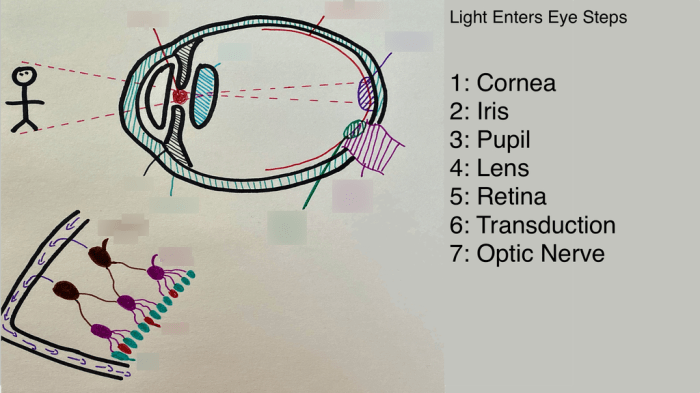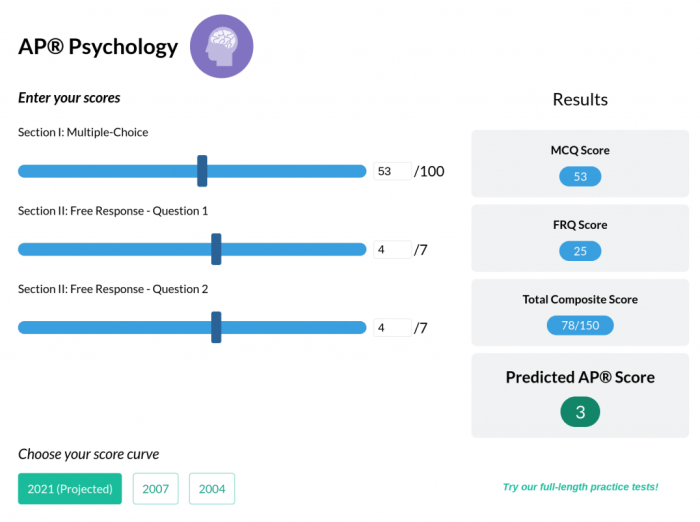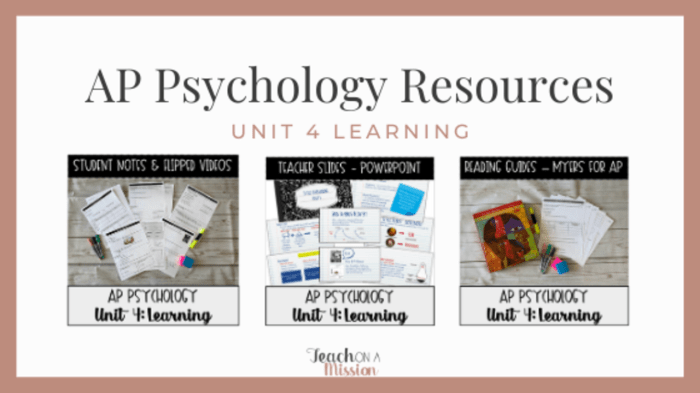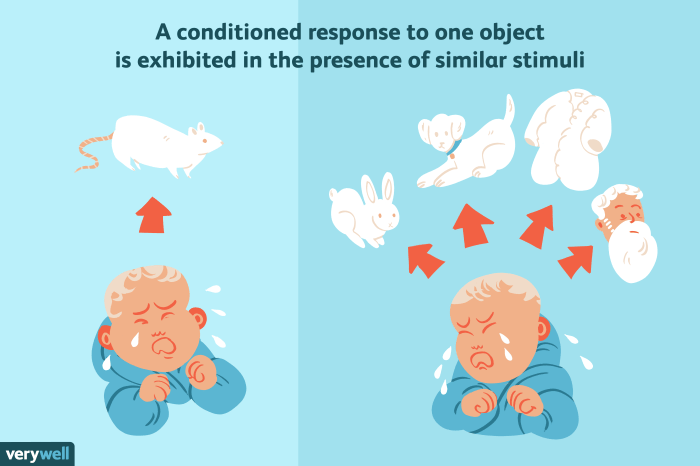Ap psychology unit 4 exam – Prepare yourself for an intellectual adventure as we delve into the captivating world of AP Psychology Unit 4. This comprehensive exam encompasses the intricacies of human development, personality, social dynamics, and more. Join us as we unlock the secrets of the human mind and discover the fascinating tapestry of our psychological makeup.
In this comprehensive guide, we’ll explore the fundamental concepts and theories that underpin this unit, delve into the diverse research methods employed by psychologists, and trace the remarkable journey of human development from infancy to adolescence. We’ll unravel the enigmatic nature of personality, uncover the key principles of social psychology, and gain insights into the complexities of abnormal psychology.
Key Concepts and Theories
Unit 4 of AP Psychology delves into fundamental concepts that underpin the study of human behavior and cognition. These concepts provide a framework for understanding how individuals perceive, think, learn, and remember information.
Perception
Perception encompasses the processes by which individuals interpret sensory information from the environment. It involves the integration of sensory inputs, such as sight, hearing, and touch, to form a coherent representation of the world around us. Key theories in perception include:
- Gestalt Theory: Emphasizes the organization and interpretation of sensory information into meaningful patterns.
- Feature Detection Theory: Suggests that specific neurons in the brain are responsible for detecting particular features of objects.
- Signal Detection Theory: Focuses on how individuals make decisions about the presence or absence of stimuli in the presence of noise.
Attention
Attention refers to the selective focus of cognitive resources on specific aspects of the environment. It involves the ability to filter out irrelevant information and concentrate on relevant stimuli. Key theories of attention include:
- Filter Theory: Proposes that attention acts as a filter, allowing only a limited amount of information to reach conscious awareness.
- Resource Theory: Suggests that attention is a limited resource that can be allocated to different tasks or stimuli.
- Inhibition Theory: Emphasizes the role of inhibitory mechanisms in suppressing irrelevant information.
Memory
Memory encompasses the processes involved in encoding, storing, and retrieving information. It consists of different types of memory, including:
- Sensory Memory: Stores sensory information for a very brief period.
- Short-Term Memory: Holds information for a limited duration, usually a few seconds or minutes.
- Long-Term Memory: Stores information for an extended period, potentially indefinitely.
Key theories of memory include:
- Levels of Processing Theory: Suggests that the depth of processing information influences how well it is remembered.
- Elaboration Theory: Proposes that linking new information to existing knowledge enhances memory.
- Retrieval Theory: Focuses on the processes involved in accessing information from memory.
Learning
Learning involves the acquisition of new knowledge, skills, or behaviors. It occurs through various processes, including:
- Classical Conditioning: Involves associating a neutral stimulus with a meaningful stimulus.
- Operant Conditioning: Focuses on the reinforcement or punishment of behaviors to shape them.
- Observational Learning: Occurs through observing and imitating the behaviors of others.
Key theories of learning include:
- Behaviorism: Emphasizes the role of observable behaviors and environmental factors in learning.
- Cognitive Theory: Focuses on the mental processes involved in learning, such as attention, memory, and problem-solving.
- Social Learning Theory: Highlights the influence of social factors on learning, including modeling and reinforcement.
Research Methods

Research methods are the techniques used by psychologists to collect data and test hypotheses. The choice of method depends on the research question being asked, the type of data needed, and the resources available.
As you gear up for the AP Psychology Unit 4 Exam, it’s essential to sharpen your understanding of developmental psychology. Consider exploring the iconic novel “The Catcher in the Rye” through this comprehensive catcher in the rye quiz . Its insightful questions will delve into the developmental struggles and complexities faced by Holden Caulfield, providing valuable insights that can enrich your exam preparation for the AP Psychology Unit 4 Exam.
The two main types of research methods are qualitativeand quantitative. Qualitative methods focus on understanding the subjective experiences of individuals, while quantitative methods focus on collecting numerical data to test hypotheses.
Observational Methods
Observational methods involve observing and recording behavior without intervening. This can be done in a natural setting or in a laboratory.
- Naturalistic observationis conducted in a real-world setting, without the researcher interfering.
- Structured observationis conducted in a controlled setting, with the researcher observing specific behaviors.
Strengths of observational methods include their ability to capture naturalistic behavior and avoid reactivity. However, they can be time-consuming and difficult to control for confounding variables.
Experimental Methods
Experimental methods involve manipulating an independent variable to see how it affects a dependent variable. This is the most rigorous research method, but it can be expensive and time-consuming.
- Laboratory experimentsare conducted in a controlled setting, with the researcher manipulating the independent variable and measuring the dependent variable.
- Field experimentsare conducted in a real-world setting, with the researcher manipulating the independent variable and measuring the dependent variable.
Strengths of experimental methods include their ability to control for confounding variables and establish causality. However, they can be artificial and may not generalize to real-world settings.
Correlational Methods
Correlational methods involve measuring the relationship between two or more variables. This can be done using a variety of statistical techniques.
- Positive correlationindicates that as one variable increases, the other variable also increases.
- Negative correlationindicates that as one variable increases, the other variable decreases.
Strengths of correlational methods include their ability to identify relationships between variables and predict outcomes. However, they cannot establish causality.
Other Research Methods
In addition to the above methods, there are a number of other research methods that psychologists use, including:
- Case studiesinvolve studying a single individual or group in depth.
- Surveysinvolve collecting data from a large number of people.
- Meta-analysesinvolve combining the results of multiple studies.
The choice of research method depends on the research question being asked, the type of data needed, and the resources available.
Developmental Psychology

Developmental psychology explores the cognitive, emotional, and social changes individuals undergo throughout their lives, from infancy to adolescence. This field investigates the factors that shape development and the processes involved in transitioning from one stage to another.
Stages of Human Development
Human development can be broadly divided into the following stages:
- Infancy:From birth to approximately 18 months, marked by rapid physical, cognitive, and social development.
- Toddlerhood:From 18 months to 3 years, characterized by increased mobility, language acquisition, and independence.
- Preschool:From 3 to 5 years, marked by further cognitive development, socialization, and self-regulation.
- Middle Childhood:From 6 to 11 years, a period of significant cognitive and social growth, including the development of friendships and academic skills.
- Adolescence:From 11 to 18 years, characterized by physical and hormonal changes, increased independence, and the development of identity.
Factors Influencing Development
Multiple factors influence human development, including:
- Genetics:Genes play a role in determining physical and psychological traits, including temperament and cognitive abilities.
- Environment:The environment, including family, peers, and culture, has a profound impact on development.
- Experience:Interactions with the environment shape cognitive, emotional, and social development.
- Maturation:Biological processes, such as brain development and hormonal changes, also contribute to development.
Personality

Personality refers to the enduring patterns of thoughts, feelings, and behaviors that characterize an individual. It encompasses the unique combination of traits, motivations, and coping mechanisms that shape our responses to the world around us.
There are various theories that attempt to explain the development and structure of personality. Some of the most influential theories include:
Trait Theories
- Psychoanalytic Theory:Developed by Sigmund Freud, this theory emphasizes the role of unconscious drives and conflicts in shaping personality. It suggests that personality is formed during childhood and is influenced by early experiences and relationships.
- Behaviorism:This theory focuses on the role of learning and conditioning in shaping personality. It suggests that personality is shaped by the experiences and rewards that an individual receives.
- Humanistic Theory:This theory emphasizes the role of free will and self-actualization in shaping personality. It suggests that individuals have the potential to grow and change throughout their lives and that they are motivated by the need to fulfill their unique potential.
Social-Cognitive Theories
- Social Learning Theory:This theory emphasizes the role of observation, imitation, and reinforcement in shaping personality. It suggests that individuals learn personality traits by observing and interacting with others.
- Cognitive Theory:This theory emphasizes the role of thoughts and beliefs in shaping personality. It suggests that personality is influenced by the way individuals perceive and interpret the world around them.
Personality Traits
Personality traits are enduring characteristics that describe an individual’s consistent patterns of behavior. Some of the most common personality traits include:
- Extraversion vs. Introversion
- Agreeableness vs. Disagreeableness
- Conscientiousness vs. Unconscientiousness
- Neuroticism vs. Emotional Stability
- Openness to Experience vs. Closedness to Experience
These traits can influence behavior in various ways. For example, extroverts are more likely to be outgoing and sociable, while introverts are more likely to be reserved and quiet. Agreeable individuals are more likely to be cooperative and helpful, while disagreeable individuals are more likely to be confrontational and competitive.
Social Psychology: Ap Psychology Unit 4 Exam

Social psychology examines how individuals’ thoughts, feelings, and behaviors are influenced by the actual, imagined, or implied presence of others. It focuses on understanding how social situations affect human behavior, including how people perceive and interact with each other, and how they are influenced by social norms, culture, and group dynamics.
One of the key concepts in social psychology is conformity, which refers to the tendency of individuals to align their thoughts, feelings, and behaviors with those of the majority or a group they identify with. This can occur even when the individual’s own beliefs or opinions differ from those of the group.
Conformity is often driven by a desire to be accepted and avoid social disapproval.
Another key concept is obedience, which refers to the tendency of individuals to follow the orders or instructions of an authority figure, even if they conflict with their own moral or ethical beliefs. This can occur due to factors such as the perceived legitimacy of the authority figure, the desire to avoid punishment, or the belief that obedience is necessary for maintaining social order.
Role of Social Influence, Ap psychology unit 4 exam
Social influence plays a significant role in shaping human behavior. It can occur through various mechanisms, including:
- Informational influence: Occurs when individuals adopt the beliefs or behaviors of others because they perceive them as being knowledgeable or expert.
- Normative influence: Occurs when individuals conform to the expectations or norms of a group in order to gain acceptance and avoid social disapproval.
- Coercive influence: Occurs when individuals comply with the demands of others due to fear of punishment or other negative consequences.
Understanding the role of social influence is crucial for understanding how individuals make decisions, form attitudes, and behave in social situations.
Abnormal Psychology
Abnormal psychology is the study of mental disorders, which are conditions that affect a person’s thoughts, feelings, and behaviors. Mental disorders can range from mild to severe, and they can have a significant impact on a person’s life.
Types of Mental Disorders
There are many different types of mental disorders, and they can be classified in a variety of ways. One common way to classify mental disorders is by their symptoms. Some of the most common symptoms of mental disorders include:
- Changes in mood, such as depression or mania
- Changes in thinking, such as delusions or hallucinations
- Changes in behavior, such as aggression or withdrawal
- Physical symptoms, such as fatigue or pain
Another way to classify mental disorders is by their cause. Some mental disorders are caused by genetic factors, while others are caused by environmental factors, such as trauma or stress. Some mental disorders are caused by a combination of genetic and environmental factors.
Causes of Mental Disorders
The causes of mental disorders are not fully understood, but there are a number of factors that are thought to contribute to their development. These factors include:
- Genetics
- Environment
- Trauma
- Stress
- Substance abuse
Treatments for Mental Disorders
There are a variety of treatments available for mental disorders, and the best treatment will vary depending on the individual and the disorder. Some of the most common treatments for mental disorders include:
- Therapy
- Medication
- Hospitalization
- Self-help groups
Therapy is a type of treatment that involves talking to a mental health professional about your thoughts, feelings, and behaviors. Medication can be used to treat a variety of mental disorders, including depression, anxiety, and schizophrenia. Hospitalization may be necessary for people who are a danger to themselves or others.
Self-help groups can provide support and information to people with mental disorders.
Test-Taking Strategies

Preparing for an exam is not only about studying the material but also developing effective test-taking strategies. By implementing certain techniques, you can enhance your performance and increase your chances of success.
Multiple-Choice Questions
- Read the question carefully and identify the key concepts.
- Eliminate any obviously incorrect answer choices.
- Consider the remaining answer choices and select the one that best fits the question.
- Don’t guess unless you have to; an incorrect answer will lower your score.
Time Management
Time management is crucial during an exam. Here are some strategies to help you allocate your time effectively:
- Scan the entire exam to get an overview of the questions and their point values.
- Start with the questions you are most confident about.
- Budget your time wisely, giving more attention to higher-point questions.
- Don’t get stuck on one question; move on and come back to it later if time permits.
FAQ Section
What are the key concepts covered in AP Psychology Unit 4?
Unit 4 delves into developmental psychology, personality, social psychology, and abnormal psychology, exploring concepts such as stages of human development, theories of personality, social influence, and mental disorders.
What research methods are commonly used in psychology?
Psychologists employ a range of research methods, including naturalistic observation, surveys, case studies, and experiments, each with its own strengths and weaknesses.
How does personality influence behavior?
Personality traits, such as extroversion, agreeableness, and conscientiousness, can significantly impact our thoughts, feelings, and actions, shaping our interactions with others and our overall life experiences.
What are the key principles of social psychology?
Social psychology examines how individuals’ thoughts, feelings, and behaviors are influenced by the presence of others, including concepts such as conformity, obedience, and social facilitation.
What are some common mental disorders?
Abnormal psychology covers a wide range of mental disorders, including anxiety disorders, mood disorders, and personality disorders, each with its own unique symptoms and treatment approaches.

